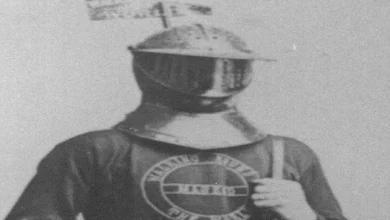Who is Quinn, first non-binary transgender person to win an Olympic medal
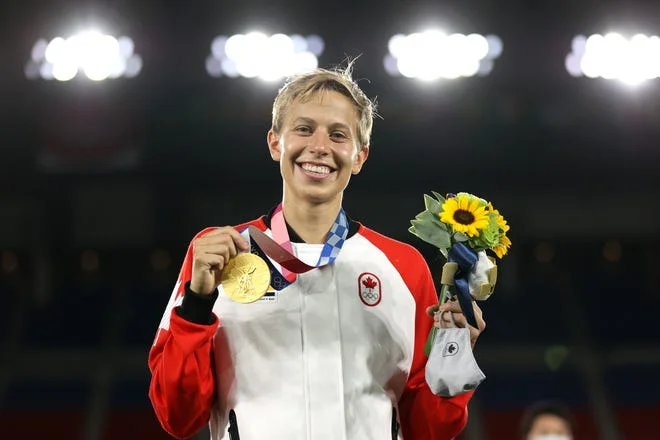
At the age of 25, she won the gold medal after the women’s soccer final in which Canada beat Sweden in penalties. Quinn made history this Friday by becoming the first non-binary transgender person to win an Olympic medal.
As a member of the Canadian soccer team that competes in the women’s division, she climbed to the top of the podium after beating Sweden in a final that extended her definition until the penalty shoot-out.
His activism for the visibility of the LGBT community and his sporting merits made him one of the most prominent personalities of Tokyo 2020.
“Is this thing that just happened real?” Quinn wrote on his social networks after achieving the maximum merit with his selection. Hours after the close match against the European cast ended, he published a photo of himself on the podium smiling and with the medal hanging from his neck.
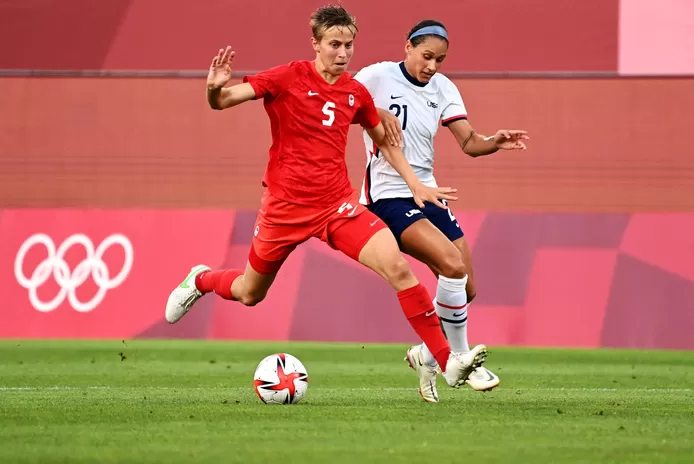
Surely that image will become a symbol of the Asian event and the conquest of rights by trans people in the sports world.
In September of last year, Quinn made a post on her Instagram account in which she publicly announced her identity as a non-binary transgender person and said that from then on, she would use neutral pronouns.
Quinn was born in Toronto, Canada, in 1995. In his childhood, he participated in hockey, basketball, and even ski teams, but his twin sister instilled in him a love of football.
After showing off on the Duke University football team in North Carolina, he began playing for Washington Spirit of the powerful league in the United States. During his career, he had steps for Paris FC of France and Vittsjö GIK of Sweden, and currently, he is a member of the OL Reign of the NWSL.
In his selection, he has shone over the years both in the youth categories and in the group of seniors, and his presence is recurrent in the different calls. This is not the first time that he has stood on an Olympic podium.
Before presenting himself publicly as a non-binary person, he participated in the Canadian team that won the bronze medal in Rio de Janeiro 2016 after beating Brazil in a match for the third place that got all the looks for the favoritism the locals had. He was also part of his national team at the 2019 World Cup in France.
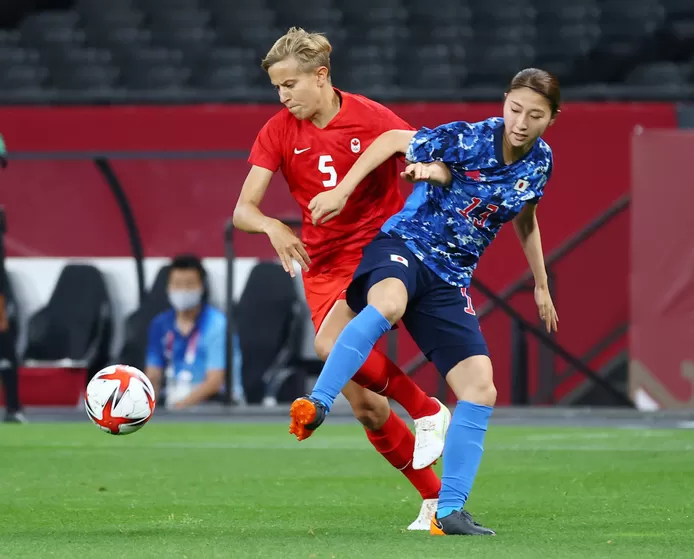
Quinn, who has a college degree in Biology, excels as a midfielder and manages to take his team to the top, and gained even greater visibility for the message he wants to convey to society. “I have lived openly as a trans person with the people I love for many years, and I always wondered what it would be like when I did it publicly,” she said the day she spoke on her social media about her gender identity.
In the run-up to the 2016 Rio de Janeiro Olympic Games, the International Olympic Committee (IOC) changed its policies. It determined that it is no longer necessary for transgender athletes to undergo an operation to compete in the branch corresponding to the gender identity that expresses.
However, he kept his recommendations regarding the measurement of testosterone: trans women should keep their levels below 10nmol/L throughout the year before the competition. Trans men should not meet these requirements.
This Friday, Quinn was a starter in the Canadian team that faced Sweden for the grand Olympic final. She played only 45 minutes, and Julia Grosso entered her place at halftime. Stina Blackstenius advanced on the scoreboard to the European cast at 34 minutes of the first half, and the North Americans’ equality came from Jessie Fleming’s feet from a shot from the penalty spot executed at 22 of the complement.
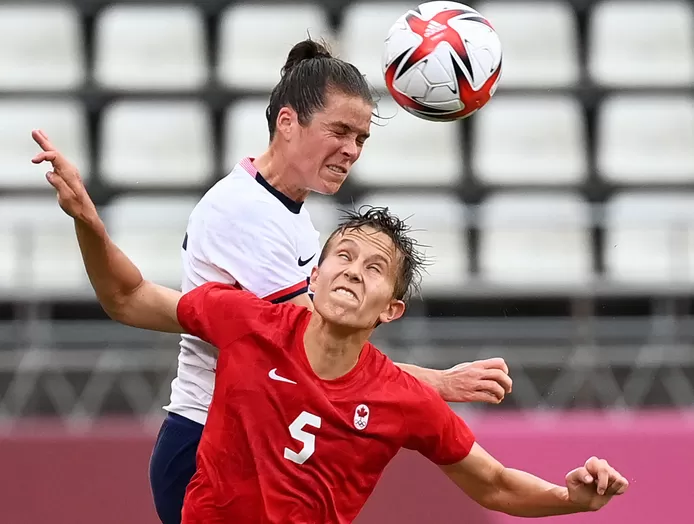
Equality in regulation time forced to dispute an extension in which no differences were drawn. In the instance, from the twelve steps, there were multiple failures of both selected, but finally, the victory and the gold were on the side of those led by Beverly Priestman.
Quinn thus becomes a reference when it comes to talking about Tokyo 2020 as the Olympic Games with the greatest diversity of all time so far. Not only is it the competition that has come closest to full gender parity, but it is also the event in which there has been the highest representation of people who identify as members of the LGBT community.


